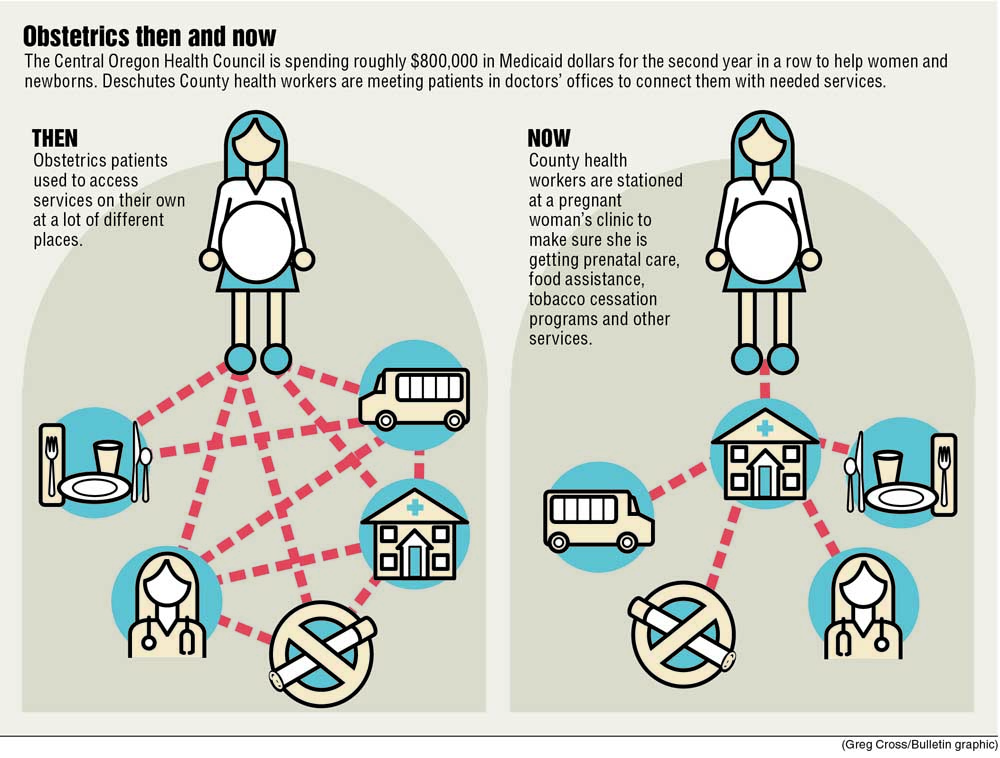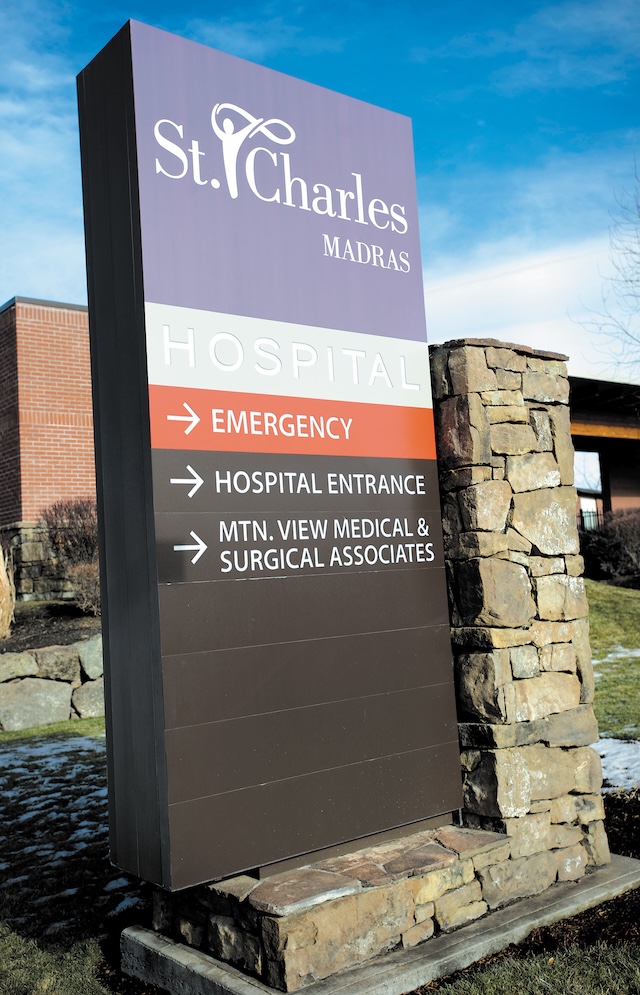Visit a doctor for prenatal care, leave with guidance
Published 6:49 am Tuesday, October 24, 2017

- Visit a doctor for prenatal care, leave with guidance
Deschutes County Health Services has an impressive arsenal of services for pregnant women — food assistance, family support, education, counseling — but some people, despite potentially being eligible, don’t take advantage.
Oftentimes, that’s simply because they don’t know it’s there. That, or they don’t have the time off work or transportation to get to the county building to learn more and sign up.
Trending
A new collaborative effort between the county and health care providers seeks to prevent families from falling through the cracks. County employees called perinatal care coordinators are meeting patients in their doctors’ offices — oftentimes directly before or after their visits — to gauge their interest in services, check their eligibility and, of course, sign them up, right then and there.
“Before, it was a paper referral and a verbal referral, ‘Go to public health; they can help you with that,’” said Erin Hoar, Deschutes County’s regional perinatal care coordinator, who oversees the program in Deschutes, Jefferson and Crook counties. Now, “it’s really meeting patients where they’re at to help engage them in programs, if they choose.”
Between the initiative’s launch in October 2016 and June 2017, the coordinators served 888 women in the tri-county region.
A group of community health leaders developed the program as one way to meet their goals of increasing the number of Central Oregon women who receive prenatal care during their first trimesters from 86 percent last year to 90 percent in 2020, and bringing the number of low birth weight babies to no more than 5 percent of total babies born in the region.
That group, the Central Oregon Health Council, is composed of health care providers, administrators, elected officials and others who monitor how Medicaid dollars are spent locally and ensure that population’s health is improving.
“These are the people that are into this,” said Donna Mills, the Health Council’s executive director. “This is their thing, so they are self-motivated in wanting to move the metric from where it is today.”
Trending
Unlike some of the Health Council’s other projects, though, this one focuses broadly on improving the health of all women and babies in Central Oregon, not just those who rely on Medicaid. Funding for the project — roughly $800,000 in the first year and again this year — comes from unspent Medicaid dollars that can go toward population health initiatives.
The care coordinators can teach women about prenatal care and refer them to a home-visiting program that provides services like screenings and health monitoring, counseling, primary care and dental care. They also can enroll women in the Special Supplemental Nutrition Program for Women, Infants and Children (WIC), which provides food assistance and Medicaid, known in Oregon as the Oregon Health Plan. They can also get them help with transportation, housing childbirth education and smoking cessation programs.
St. Charles’ Center for Women’s Health in Redmond has fully embraced the initiative. Currently, the clinic has a county perinatal care coordinator there about 24 hours per week. The Center also brings a care coordinator when it sees patients at St. Charles Family Care in Prineville.
In fact, St. Charles recommends that all of its obstetrics patients meet with a care coordinator, regardless of their socioeconomic status, said Tricia Clay, clinic operation manager for the St. Charles Center for Women’s Health. Currently, about 90 percent of patients do, she said.
Clay said she thinks that practice has resulted in more eligible women getting enrolled in services like WIC and the home-visiting program than in the past, including some who have private insurance.
“They never would have thought that they could be eligible,” she said. “We’ve definitely had several cases of that.”
Two care coordinators also work in the East Cascade Women’s Group clinic in Bend, but a staff member there did not return a request for comment.
Mosaic Medical hopes to get a perinatal care coordinator into its Madras clinic by the end of the month, said clinic manager Natalie Jacuzzi. That clinic currently has two primary care physicians providing prenatal care, one of whom is a surgeon who performs deliveries as well.
Some of the clinic’s patients have “quite a bit of need,” and Jacuzzi said she thinks linking them directly with someone who can enroll them in programs will help.
“I think it’ll be a great partnership,” she said.
— Reporter: 541-383-0304,
tbannow@bendbulletin.com
Get more information
Pregnant women can call their county health departments to get linked with a care coordinator over the phone and learn about what services they qualify for:
Deschutes County: 541-322-7448
Jefferson County: 541-475-4456
Crook County: 541-447-5165
Planned Parenthood now providing prenatal care
Following the closure of the St. Charles Center for Women’s Health in Bend, the Planned Parenthood clinic in Bend decided to start providing womens’ first prenatal care visits, which are typically one hour long and involve a number of tests and extensive education, said Tricia Wilder, regional health center manager for Planned Parenthood Columbia Willamette Bend health center.
Most of the clinic’s referrals for prenatal care have come internally, from patients who come to Planned Parenthood for pregnancy tests and learn they’re pregnant. But Wilder said Planned Parenthood is also trying to get the word out across Central Oregon that women can go there for their first prenatal visit. After that, a clinic employee schedules their follow-up visits with other local providers, such as St. Charles or East Cascade Women’s Group.
Planned Parenthood in Bend can schedule prenatal visits the same week they’re requested; sometimes, the next day, Wilder said.
“It makes a lot of sense, especially with our availability, for us to offer this,” she said. “Because for many people, we’re the first place to find out.”








